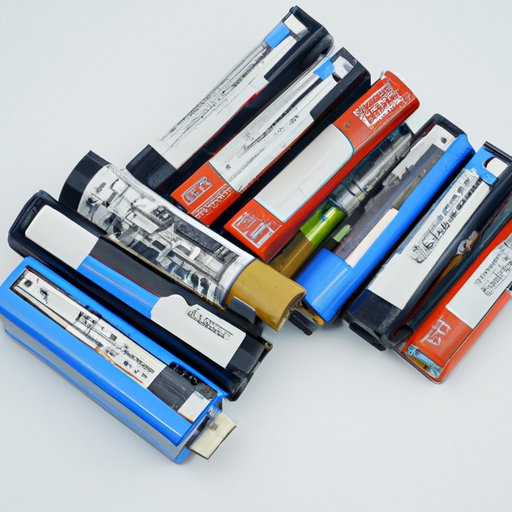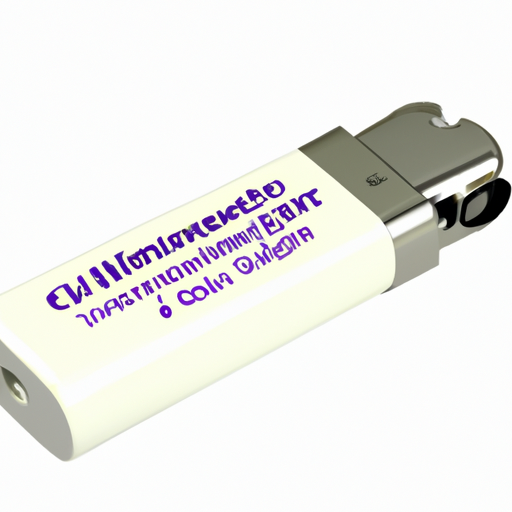What Product Types are Included in Lithium Battery Chargers?
I. Introduction
Lithium batteries have revolutionized the way we power our devices, from smartphones to electric vehicles. Their lightweight design, high energy density, and ability to recharge quickly make them the preferred choice for a wide range of applications. However, to harness the full potential of lithium batteries, specialized chargers are essential. This article aims to explore the various product types of lithium battery chargers, highlighting their features, benefits, and applications.
II. Understanding Lithium Batteries
A. Definition and Characteristics of Lithium Batteries
Lithium batteries are rechargeable energy storage devices that utilize lithium ions to move between the anode and cathode during charging and discharging. They are known for their high energy density, low self-discharge rate, and long cycle life, making them ideal for portable electronics and electric vehicles.
B. Common Applications of Lithium Batteries
1. **Consumer Electronics**: Lithium batteries power a vast array of consumer electronics, including smartphones, laptops, tablets, and cameras. Their compact size and efficiency make them suitable for devices that require frequent recharging.
2. **Electric Vehicles**: The automotive industry has increasingly adopted lithium batteries for electric vehicles (EVs) due to their ability to store large amounts of energy and provide long driving ranges.
3. **Renewable Energy Storage**: Lithium batteries are also used in renewable energy systems, such as solar and wind power, to store energy for later use, enhancing the reliability of these energy sources.
C. The Need for Specialized Chargers
Given the unique chemistry and characteristics of lithium batteries, standard chargers are often inadequate. Specialized chargers are designed to optimize charging efficiency, prolong battery life, and ensure safety during the charging process.
III. Types of Lithium Battery Chargers
A. Standard Chargers
**Definition and Features**: Standard chargers are basic charging devices that provide a constant voltage to charge lithium batteries. They are typically simple in design and easy to use.
**Typical Use Cases**: Standard chargers are commonly used for consumer electronics, such as smartphones and laptops, where charging speed is not a critical factor.
B. Smart Chargers
**Definition and Features**: Smart chargers incorporate advanced technology to monitor the charging process. They can adjust the charging current and voltage based on the battery's state of charge, ensuring optimal charging conditions.
**Benefits of Smart Charging Technology**: Smart chargers help extend battery life by preventing overcharging and overheating. They often come with features like LED indicators and automatic shut-off.
**Examples of Smart Chargers**: Brands like Ansmann and Nitecore offer smart chargers that cater to various lithium battery types, providing users with flexibility and safety.
C. Fast Chargers
**Definition and Features**: Fast chargers are designed to deliver higher power levels to charge lithium batteries quickly. They often use advanced charging protocols to increase charging speed without compromising safety.
**Applications in High-Demand Scenarios**: Fast chargers are particularly useful for devices that require rapid recharging, such as smartphones and electric vehicles, where downtime needs to be minimized.
**Safety Considerations**: While fast charging is convenient, it can generate heat. Therefore, safety features like temperature monitoring and automatic current adjustment are crucial.
D. Solar Chargers
**Definition and Features**: Solar chargers harness solar energy to charge lithium batteries. They typically consist of solar panels, a charge controller, and a battery management system.
**Benefits of Solar Charging for Lithium Batteries**: Solar chargers are eco-friendly and ideal for outdoor activities, providing a sustainable power source in remote locations.
**Use Cases in Outdoor and Off-Grid Settings**: Hikers, campers, and travelers often use solar chargers to keep their devices powered without relying on traditional electricity sources.
E. Multi-Channel Chargers
**Definition and Features**: Multi-channel chargers can charge multiple lithium batteries simultaneously. They often come with various slots to accommodate different battery sizes and types.
**Advantages for Users with Multiple Devices**: For users with several devices, such as cameras, drones, and power tools, multi-channel chargers offer convenience and efficiency, reducing the need for multiple chargers.
**Examples of Multi-Channel Chargers**: Brands like XTAR and Efest provide multi-channel chargers that cater to various battery chemistries, including lithium-ion and lithium-polymer.
F. USB Chargers
**Definition and Features**: USB chargers are versatile charging devices that use USB ports to charge lithium batteries. They are compatible with a wide range of devices, from smartphones to portable speakers.
**Compatibility with Various Devices**: USB chargers are widely used due to their universal compatibility, making them a popular choice for portable charging solutions.
**Importance in Portable Charging Solutions**: With the rise of mobile devices, USB chargers have become essential for on-the-go charging, allowing users to recharge their devices anytime, anywhere.
IV. Specialized Lithium Battery Chargers
A. Chargers for Electric Vehicles (EVs)
**Types of EV Chargers**: EV chargers come in various types, including Level 1 (standard household outlets), Level 2 (dedicated charging stations), and DC fast charging (high-power charging stations).
**Features and Benefits Specific to EV Charging**: EV chargers are designed to handle the high energy demands of electric vehicles, providing faster charging times and enhanced safety features.
B. Chargers for Power Tools
**Overview of Power Tool Battery Systems**: Power tools often use lithium batteries for their lightweight and high-performance characteristics. Chargers for these batteries must be compatible with specific battery types.
**Importance of Compatibility and Performance**: Using the correct charger ensures optimal performance and longevity of power tool batteries, preventing damage and reducing the risk of accidents.
C. Chargers for Drones and RC Vehicles
**Unique Charging Requirements for Drone Batteries**: Drone batteries often have specific charging needs due to their high discharge rates and unique cell configurations.
**Examples of Specialized Chargers for Drones**: Brands like DJI and Hitec offer specialized chargers designed to meet the unique requirements of drone batteries, ensuring safe and efficient charging.
V. Factors to Consider When Choosing a Lithium Battery Charger
A. Battery Compatibility
Ensure that the charger is compatible with the specific type of lithium battery you are using. Different batteries may have varying voltage and capacity requirements.
B. Charging Speed and Efficiency
Consider the charging speed and efficiency of the charger, especially if you need to recharge devices quickly. Fast chargers may be beneficial for high-demand applications.
C. Safety Features
Look for chargers with built-in safety features, such as overcharge protection, temperature monitoring, and short-circuit prevention, to ensure safe charging.
D. Portability and Design
If you plan to use the charger on the go, consider its size and weight. Portable chargers should be lightweight and easy to carry.
E. Price and Warranty Considerations
Evaluate the price of the charger in relation to its features and performance. Additionally, check for warranty options to ensure you are covered in case of defects.
VI. Conclusion
Lithium battery chargers play a crucial role in maximizing the performance and lifespan of lithium batteries. With various product types available, including standard, smart, fast, solar, multi-channel, and specialized chargers, users can find the right solution for their specific needs. When selecting a charger, it is essential to consider factors such as battery compatibility, charging speed, safety features, and portability. By understanding the different types of lithium battery chargers, users can make informed decisions that enhance their charging experience and ensure the longevity of their devices.
VII. References
For further reading and research on lithium battery chargers and technologies, consider exploring the following sources:
1. Battery University: [Battery University](https://batteryuniversity.com/)
2. National Renewable Energy Laboratory: [NREL](https://www.nrel.gov/)
3. Consumer Electronics Association: [CEA](https://www.ce.org/)
4. Electric Vehicle Charging Association: [EVCA](https://www.evca.org/)
This comprehensive overview of lithium battery chargers provides valuable insights into the various product types available, helping users make informed choices for their charging needs.













